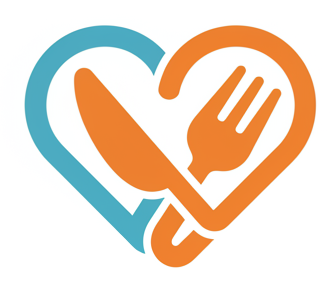Social media affects millions of people in the United States. It’s important to understand how it impacts mental health. The way we use social media, the content we see, and how companies design their platforms all play a role.
It’s key to know how social media affects our mental health. The effects can be good or bad. We need to talk about this to stay healthy online.

Knowing about social media’s impact on mental health helps us make better choices online. By understanding these effects, we can protect our mental well-being. This is a big concern that we all need to address.
Introduction to the Impact of Social Media
In this article, we’ll explore social media’s effects on mental health. We’ll look at both the good and bad sides. We’ll also share tips for staying healthy online.
Key Takeaways
- Understanding social media’s impact on mental health is crucial today.
- Social media mental health is shaped by how we use it, what we see, and platform design.
- The effects of social media on mental health can be both positive and negative.
- Being informed helps us make better choices online.
- Staying healthy online requires attention to social media’s impact on mental health.
- The impact of social media on mental health is a big concern we all need to address.
Understanding the Social Media Revolution
The rise of social media has changed how we connect and share information. It impacts our mental health in many ways. With billions of users, the relationship between social media and mental wellbeing is complex.
Exploring social media reveals its widespread appeal. Key factors include:
- Accessibility: Social media is easy to use on many devices, keeping us connected.
- Community building: It lets us find others with similar interests, creating a sense of belonging.
- Information sharing: Platforms like Facebook and Instagram allow us to share news and updates.
People spend about 2 hours and 25 minutes on social media daily. This time can affect our mental health. While it offers connection, too much can cause loneliness and depression.
Understanding social media’s impact on mental health is key. By grasping the revolution, we can promote healthy use and reduce negative effects.
| Platform | Number of Users | Average Time Spent |
|---|---|---|
| 2.7 billion | 38 minutes | |
| 1.2 billion | 53 minutes | |
| TikTok | 655.9 million | 52 minutes |
The Impact of Social Media on Mental Health: Latest Research Findings
Recent social media mental health research has shown how digital platforms affect our well-being. It found that too much social media can make anxiety and depression worse. It also lowers self-esteem. The mental health social media influence is complex, with both good and bad effects.
One important finding is the link between social media and less face-to-face time. This can make people feel lonely and isolated, harming their mental health. Yet, social media can also offer a sense of belonging and community, which is good for our mental state.
- Increased symptoms of anxiety and depression
- Decreased self-esteem
- Correlation between social media use and decreased face-to-face interaction
- Potential benefits of social media for mental health, such as providing a sense of connection and community
The mental health social media influence is complex and needs more study. Knowing the risks and benefits of social media can help protect our mental health and well-being.
| Study | Findings |
|---|---|
| Social Media Use and Mental Health | Correlation between social media use and decreased face-to-face interaction |
| The Impact of Social Media on Self-Esteem | Decreased self-esteem in individuals who use social media excessively |
Depression and Social Media Usage Patterns
Research shows a strong link between social media and depression. Social media can spread false information and create unrealistic expectations. It’s important to know the dangers of too much social media use.
Studies have found a scary connection between social media and depression. It makes people feel lonely, even when they’re online with others. Key findings include:
- Increased risk of depression and anxiety
- Decreased self-esteem and body satisfaction
- Increased sleep disturbances and fatigue
It’s vital to spot the signs of depression linked to social media. These signs include:
- Excessive social media use, leading to social isolation
- Comparing oneself to others on social media, leading to decreased self-esteem
- Engaging in online harassment or cyberbullying, which can worsen mental health issues
Understanding the link between social media and depression helps us fight its negative effects. We can set limits, do things offline, and seek help when needed.
Social Comparison and Self-Esteem Issues
Social media is a big part of our lives today. It makes us compare ourselves to others more often. This can hurt our self-esteem because we see only the best parts of others’ lives online. Social media mental health awareness helps us understand how it affects our minds.
We can fight the bad effects of comparing ourselves. We should be careful about what we see online, take breaks, and focus on real friends and family. By doing this, we can make social media a better place for our mental health.
Here are some ways to keep a good self-esteem on social media:
- Limit your time on social media
- Stop following accounts that show too much of a perfect life
- Do things offline to feel more complete
Knowing how social media can hurt our self-esteem helps us stay healthy online. It’s key for our mental well-being and happiness. Let’s make social media a positive space for everyone.
| Strategy | Benefits |
|---|---|
| Limiting social media use | Less exposure to fake content, more time for real life |
| Unfollowing or muting accounts | Less bad content, better mental health |
| Engaging in offline activities | More purpose, better self-esteem |
Anxiety and Digital FOMO
Exploring social media reveals its effect on our mental health. Social media mental health statistics show that FOMO can increase anxiety, lower self-esteem, and warp our view of reality. Mental health social media research points out that too much social media can trigger anxiety. It’s vital to find ways to handle these feelings.
Digital FOMO makes us feel anxious because we always need to be connected. Social media’s instant updates make us think we’re missing out. To fight this, finding a balance between online and offline life is key.
- Setting boundaries: Limiting social media use to specific times of the day
- Engaging in offline activities: Pursuing hobbies, exercise, or spending time with friends and family
- Practicing self-compassion: Being kind to oneself and acknowledging that it’s okay to miss out on certain events or updates
By using these strategies, we can lessen digital FOMO’s negative effects on our mental health. This helps us have a healthier relationship with social media.
Positive Aspects of Social Media Connection
Social media connects people, creating a sense of community. It’s great for those who find it hard to make friends in real life. It lets people meet others with similar interests, making them feel part of a group and social media mental health awareness.
It’s also a place to find support groups and online communities. These spaces are safe for sharing experiences and connecting with others facing similar issues. The mental health social media influence helps spread awareness and fights against mental health stigma.

- It offers access to mental health resources and support groups.
- It gives a sense of community and connection.
- It promotes mental health awareness and fights stigma.
By recognizing the good in social media connection, we can build a healthier online space. A place that supports mental health social media influence and social media mental health awareness.
Digital Wellness and Mental Health
Understanding the link between mental health and social media is key. It’s important to set limits on social media use to protect our mental health. This helps avoid feelings of anxiety and depression.
It’s vital to create good habits with technology. This means setting limits on screen time, doing things offline, and being mindful. Regular digital detoxes can also help, giving us time to recharge.
Some ways to detox include:
- Having device-free days or weekends
- Doing outdoor activities or exercise
- Trying meditation or yoga
By using these strategies, we can improve our mental health and reduce the harm of social media. Remember, digital wellness is a journey that needs effort and dedication.
To achieve digital wellness, we need a full approach. This includes understanding how mental health, social media, and technology interact. By focusing on digital wellness and setting limits, we can keep our mental health strong and avoid the downsides of social media.
| Digital Wellness Strategies | Benefits |
|---|---|
| Setting screen time limits | Reduced risk of anxiety and depression |
| Engaging in offline activities | Improved mental health and well-being |
| Practicing mindfulness | Increased self-awareness and emotional regulation |
The Role of Social Media in Mental Health Support
Social media can be a big help for mental health support. Social media mental health research shows it can offer a sense of community. This is great for those who find it hard to get help in person.
Online support groups are safe and private. They let people share their stories and find others who understand. Mental health social media influence also helps break down the stigma around mental health. It encourages more people to talk about their struggles and get help.
Online Support Communities
- Provide a sense of community and connection for individuals with mental health issues
- Offer a safe and anonymous space for sharing experiences and connecting with others
- Can help to reduce stigma around mental health issues
Resource Accessibility
Social media makes it easier to find mental health resources. This includes online therapy, support groups, and educational materials. It’s a big help for those who can’t find these resources locally.
By using social media wisely, we can build a supportive online community. A community that promotes mental health and well-being for everyone.
Youth Mental Health and Social Media Usage
Young people are especially at risk from social media’s effects on mental health. Seeing only the best parts of others’ lives can make them feel bad about themselves. Social media impacts mental health in many ways, like the pressure to look perfect online.
Young people face challenges like cyberbullying, not sleeping well, and needing constant approval. These issues can make them feel stressed and anxious. It’s important to teach them how to use social media wisely and safely.
Here are some ways to help young people use social media healthily:
- Setting limits on how much time they spend online
- Encouraging them to do things offline
- Teaching them to think critically about what they see online
- Helping them find mental health resources

We can help young people have a good relationship with social media. This means they can enjoy it without it hurting their mental health. It’s key to support them in the digital world.
Building Resilience in the Digital Age
Dealing with social media’s effects on mental health is key. We need strategies to build resilience. This means having a healthy relationship with social media and knowing its risks. By raising awareness, we help people make smart choices online.
Mindfulness is a big part of building resilience. Activities like meditation and yoga help us understand our thoughts and feelings. This way, we can handle social media better and stay mentally healthy.
Mindfulness Practices
- Regular meditation practice
- Engaging in physical activity, such as yoga or walking
- Practicing deep breathing exercises
Learning about digital literacy is also important. It helps us understand online content and manage our digital presence. Combining mindfulness with digital skills makes us more resilient and healthier online.
Digital Literacy Skills
By raising awareness and giving tools for resilience, we can lessen social media’s negative effects. This includes understanding its impact and managing our online time wisely. It’s all about staying well in the digital world.
Professional Help and Resources
For those dealing with mental health issues from social media, getting help is key. Social media mental health research shows too much use can worsen depression and anxiety.
There are many ways to tackle the mental health social media influence. Here are some:
- Therapists who focus on tech addiction and mental health
- Online support groups and forums
- Hotlines and helplines for quick help
Remember, asking for help is brave, not weak. By talking to experts and using resources, you can build better social media habits. This can also boost your mental health.
Groups like the National Alliance on Mental Illness (NAMI) and the American Psychological Association (APA) offer a lot of help. They share social media mental health research and tips on handling the mental health social media influence.
| Organization | Resources |
|---|---|
| National Alliance on Mental Illness (NAMI) | Online support groups, educational materials, and advocacy |
| American Psychological Association (APA) | Research findings, mental health tips, and therapist directories |
Conclusion: Finding Balance in Our Digital Lives
The impact of social media on mental health is complex. It has both good and bad sides. We need to find a balance in how we use these platforms.
Being mindful of our social media habits is key. Setting boundaries and focusing on our well-being helps. This way, we can use these tools to make our lives better, not worse.
Mental health is a journey, not a goal. Getting help when needed and taking care of ourselves is important. This helps us deal with the digital world better.
By having a healthy relationship with social media, we can make real connections. We can also find valuable resources and support our well-being.
The future of mental health in the digital age depends on balance. We should use technology to grow, not escape. Let’s use social media wisely to protect our mental health.
Together, we can make technology a positive part of our lives. It should help us, not harm us.
FAQ
What is the impact of social media on mental health?
Social media’s effect on mental health is complex. It can offer connection and support. Yet, it can also lead to anxiety, depression, and low self-esteem. This is often due to comparing ourselves to others and the fear of missing out.
How has the rise of social media platforms affected the way people connect and interact?
Social media has changed how we connect and interact. It lets us stay in touch with loved ones far away. But, online interactions can be different from face-to-face ones and may affect our mental health.
What do the latest research findings say about the relationship between social media and mental health?
Recent studies have shown social media’s impact on mental health. They found links to anxiety, depression, and low self-esteem. But, social media can also offer support and mental health resources.
How does social comparison on social media affect self-esteem?
Social comparison is natural, but social media makes it worse. The perfect images we see can make us feel bad about ourselves. This can harm our mental health and overall well-being.
What is FOMO (fear of missing out) and how does it contribute to anxiety in the digital age?
FOMO is the anxiety of missing out on social events. Social media makes FOMO worse by showing us others’ perfect lives. This can make us feel envious and anxious.
Can social media also have positive impacts on mental health?
Yes, social media can be good for mental health. It can help us feel connected, especially for those who find it hard to meet people in person. It also makes mental health resources more accessible.
How can individuals maintain digital wellness and a healthy relationship with social media?
To stay healthy online, set boundaries and create good habits. Limit your time on social media and be mindful of what you see. Taking breaks from devices and learning about digital literacy can also help.
Where can people find professional help and resources for mental health issues related to social media use?
If social media is affecting your mental health, seek professional help. Look for therapists who specialize in technology addiction or mental health. Online resources and support groups can also offer help and guidance.







1 thought on “The Impact of Social Media on Mental Health”